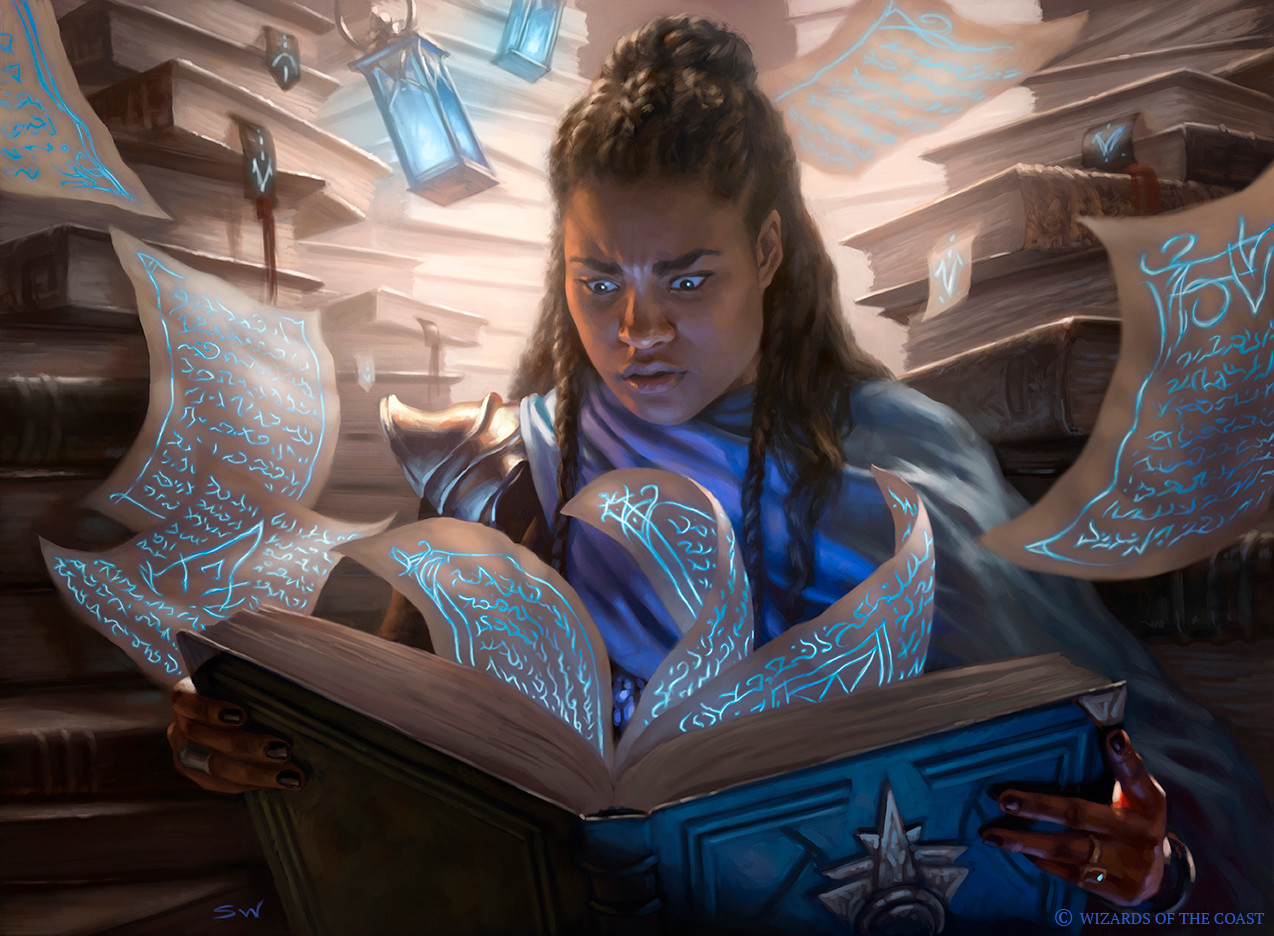



Introduction
As a GM, why should I allow this material?
The seeker is a class that fills an unfulfilled niche in the current class scheme of D&D, so this is likely why your player was interested in it.
If a player brings this to the table, rest assured: the mechanics have been tested and the math was made.
The damage output of this class is somewhere to the south of a prototypical ranger, compensating for it with more stable damage output (while having less stamina for longer combat sessions.)
The class in no way warps the 5th Edition tenets of bounded accuracy, and avoids outdated design like small bonuses that could be forgotten.
The spell list was carefully chosen to provide broad utility, but limited combat impact.
In summary, I recommend this material be allowed because it was made with care, love and rigorous review, and I don't believe the current content can fulfill this fantasy.
See Page 13 for a comparison of DPR at different levels to get an idea of the power-level of this class in comparison to other classes. As it can be seen, the seeker is in the same ballpark as the rest.
This has changed since the last time I read it. Why?
As part of playtesting and design, the class has gone through great changes. This version you are looking at in this moment is the first Stable version, as it has met the benchmarks I wanted for it.
Any other version with further changes will be mechanical tweaks, expansions of subclasses, or perhaps redesigns of the illustrations. But the skeleton will remain the same.
Why create this class?
I began creating this class when I found there was an unfulfilled niche in party composition, and character choice. The missing archetype, in my opinion, was the type best exemplified by investigators and explorers – those who are fueled by a desire to discover the secrets that lie beneath the surface of daily life and beyond the confines of it as well.
I wanted it to be a martial class, to expand the options available. In strictly mechanical terms, the Eldritch Knight was too focused on evocation/transmutation and combat, and the Rogue had a very specific play pattern that didn't adapt to what I was looking to make. Besides, Rogue itself as a class was too focused on trickery. I wanted cunning to be a part of this class as well, but the focus I looked for was on the less mischevious aspects of intellect – curiosity, methodicalness, sagacity and ingenuity.
How can I convince my GM to allow it?
Show them the Show Your Work section. It has mathematical proof the class is well-balanced against others.
And tell them they are free to contact me!
What was the class inspired on?
If I had to pick a single inspiration from mass media, it would be Joseph Joestar from the manga Jojo's Bizarre Adventure: Part 3.
Bear with me.
That arc of the show is a long quest, similar to the ones in most tabletop roleplaying games. The appealing part of Joseph Joestar's character in particular was the fact that, while he was a capable brawler, his lead role was that of party navigator – figuratively speaking. His role was to find clues and progress the plot through investigation and divination.
The objective of this class is to provide a viable option to replicate the type of character who can aid the party in their quest by showing the path, guiding them forward, while also being able to tossle with any threat that appears before them.
How does this class differ from...
...a Bard?
Thematically, the bard's main motivation is self-expression and realization. Meanwhile, the seeker lives for the search itself, for a truth that lies just beyond its reach. A seeker is not interested in one-upsmanship or flair.
Mechanically, you won't find nearly enough party utility, healing nor disabling abilities in the seeker's kit, but you'll find more abilities relating to divination and material creation.
...a Ranger?
Thematically, the ranger is intrinsically connected to the material world. They have a bond to the land, they hunt creatures, they protect the furthest reaches of their homeland. On the other hand, the seeker is a class about abstraction: the search for knowledge, unveiling mysteries.
Mechanically, the ranger is extremely good at a specific set of skills, whereas the seeker opts for a broad array. Besides that, the ranger has more stamina for combat – healing spells, Hunter's Mark for a long duration ability, a few more disabling and offensive spells.
...a Rogue?
Thematically, rogues have a very broad portfolio, so some overlap is to be expected. The main difference I would say is the fact that rogues are usually marked by their profession (thief, assassin, acrobat), whereas seekers are defined by their goals.
Mechanically, there are several differences. Precision is not as necessary for the seeker, as it can naturally go with a more "in your face" Strength build. The rogue goes for skill mastery, the seeker goes for a versatile toolset.
Ok, but real talk – what is Canny Defense supposed to do?
Listen, I'm going to level with you. I wanted people who used this class and wanted to go with a stronger, pulp action hero type not to be forced into heavy armor, or lose attribute points into Dexterity.
Furthermore, the class naturally invites you to build Dexterity as well – the Eclectic feature, after all, has many more options for high Dexterity characters, offering nice pick-ups like thieves' tools.
With Canny Defense, Strength characters don't feel as shafted, have a motivation to keep medium armor, and don't need to take a lower starting Intelligence.


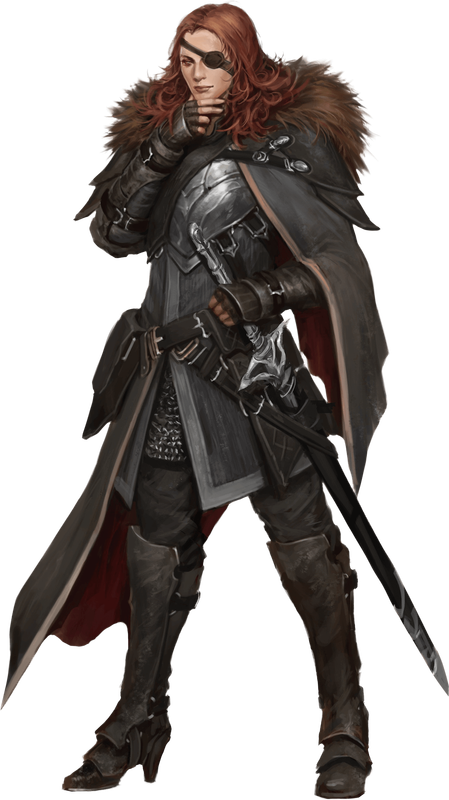


Seeker
A dust-covered drow explorer stops on her tracks as a skeletal knight crawls out of the ruins. She sizes the creature for a second, and then quickly sinks her longsword in the gap of the undead's armor.
After taking another toke at her pipe, a grizzled dwarven detective crouches down and examines a corpse. She's certain – the killer is still in the palace.
A crafty gnome watches as an arrow flies towards him, just before creating a tiny portal that sends that missile right back at his attacker.
Motivated by unbridled curiosity or a strong sense of purpose, seekers combine martial skill with utilitarian magic to be able to face every obstacle in their way.
Unraveling Mysteries
Seekers are explorers and live to dig, delve, dive, and discover. They have the tools to find new clues constantly, with divination magic and broad access to investigation skills. But they are also versatile, able to pick up any one skill as they need to fulfill their goals.
Cunning Warriors
While some combatants use speed, subterfuge or savagery to get the upper hand in battle, seekers rely on their analytical skills to predict the attacks of their enemies or to detect their weak spots.
Creating a Seeker
When you create a seeker, first consider what is the type of mystery your character would want to solve. Is your character an archaeologist, attempting to recover ancient artifacts of untold power? Perhaps your character is more of an investigator, following clues to catch their mark. Or maybe what your character is really interested in is accumulating knowledge for the sake of knowledge itself – or the power that knowledge bestows.
Quick Build
You can make a seeker quickly following these suggestions. Make Strength your highest ability score, and Intelligence your second highest. Then, choose the investigator background.
Class Features
Hit Points
- Hit Dice: 1d10 per seeker level
- Hit Points at 1st Level: 10 + your Constitution modifier
- Hit Points at Higher Levels: (1d10 or 6) + your Constitution modifier per seeker level after 1st
Proficiencies
- Armor: Light armor, Medium armor, Shields
- Weapons: Simple & Martial weapons
- Tools: None
- Saving Throws: Intelligence, Wisdom
- Skills: Choose three from Arcana, Athletics, History, Insight, Investigation, Medicine, Nature, Religion and Perception
Equipment
You start with the following equipment, in addition to the equipment granted by your background:
- (a) scale mail, or (b) leather armor
- a martial melee weapon of your choice
- (a) a shield, or (b) 4 daggers
- (a) a dungeoneer's pack or (b) an explorer's pack


The Seeker
| Level | Proficiency Bonus |
Features | Spells Known | 1st | 2nd | 3rd | 4th | 5th |
|---|---|---|---|---|---|---|---|---|
| 1st | +2 | Canny Defense, Eclectic, Keen Observation | – | – | – | – | – | – |
| 2nd | +2 | Spellcasting, Fighting Style, Improvisation | 2 | 2 | – | – | – | – |
| 3rd | +2 | Seeker's Pursuit | 3 | 3 | – | – | – | – |
| 4th | +2 | Ability Score Improvement | 3 | 3 | – | – | – | – |
| 5th | +3 | Extra Attack | 4 | 4 | 2 | – | – | – |
| 6th | +3 | Exploit Opening, Seeker's Pursuit feature | 4 | 4 | 2 | – | – | – |
| 7th | +3 | Tireless | 5 | 4 | 3 | – | – | – |
| 8th | +3 | Ability Score Improvement | 5 | 4 | 3 | – | – | – |
| 9th | +4 | Exploit Opening (2d8) | 6 | 4 | 3 | 2 | – | – |
| 10th | +4 | Seeker's Pursuit feature | 6 | 4 | 3 | 2 | – | – |
| 11th | +4 | Seize the Chance | 7 | 4 | 3 | 3 | – | – |
| 12th | +4 | Ability Score Improvement | 7 | 4 | 3 | 3 | – | – |
| 13th | +5 | Exploit Opening (3d8) | 8 | 4 | 3 | 3 | 1 | – |
| 14th | +5 | Prodigy | 8 | 4 | 3 | 3 | 1 | – |
| 15th | +5 | Flash of Genius | 9 | 4 | 3 | 3 | 2 | – |
| 16th | +5 | Ability Score Improvement | 9 | 4 | 3 | 3 | 2 | – |
| 17th | +6 | Exploit Opening (4d8) | 10 | 4 | 3 | 3 | 3 | 1 |
| 18th | +6 | Seeker's Pursuit feature | 10 | 4 | 3 | 3 | 3 | 1 |
| 19th | +6 | Ability Score Improvement | 11 | 4 | 3 | 3 | 3 | 2 |
| 20th | +6 | Masterstroke | 11 | 4 | 3 | 3 | 3 | 2 |
Canny Defense
Some seekers choose to dodge incoming attacks deliberately, using forethought and prediction rather than agility. As long as you're not wearing heavy armor, you may add your Intelligence modifier instead of your Dexterity modifier to your AC. If you wear medium armor, the maximum bonus is restricted as normal.
If you have a negative Dexterity modifier, it is applied as a penalty to your AC even if you add your Intelligence modifier this way.
Eclectic
Either from learning or from experience, you have gained extensive insight about the world around you. You choose between gaining proficiency with two tools, learning two languages of your choice, or one of each. You can't learn exotic languages through this feature.
Keen Observation
You have learned the value of paying close attention to detail. You can use the Search action as a bonus action.
Additionally, you add your Intelligence modifier as a bonus to Wisdom (Insight) and Wisdom (Perception) checks.
Spellcasting
By the time you reach 2nd level, your cunning has granted you the ability to reshape reality, allowing you to cast spells. Your spells are discoveries that you can innately exploit.
Spell Slots
The seeker table shows how many spell slots you have to cast your spells of 1st level and higher. To cast one of these spells, you must expend a slot of the spell's level or higher. You regain all expended spell slots when you finish a long rest.
Spells Known of 1st Level and Higher
You know two 1st-level spells of your choice from the seeker spell list. You learn an additional seeker spell of your choice at each odd numbered level thereafter. Each of these spells must be of a level for which you have spell slots. For instance, when you reach 5th level in this class, you can learn one new spell of 1st or 2nd level.
Additionally, when you gain a level in this class, you can choose one of the seeker spells you know and replace it with another spell from the seeker spell list, which also must be of a level for which you have spell slots.
Spellcasting Ability
Intelligence is your spellcasting ability for your seeker Spells, since your cunning allows you to fully control the arcane energies. You use your Intelligence whenever a spell refers to your spellcasting ability. In addition, you use your Intelligence modifier when setting the saving throw DC for a seeker spell you cast and when making an attack roll with one.
Spell save DC = 8 + your proficiency bonus +
your Intelligence modifier
Spell attack modifier = your proficiency bonus +
your Intelligence modifier
Fighting Style
At 2nd level, you adopt a particular style of fighting as your specialty. Choose one of the following options. You can’t take a Fighting Style option more than once, even if you later get to choose again.
Defense
While you are wearing armor, you gain a +1 bonus to AC.
Dueling
When you are wielding a melee weapon in one hand and no other weapons, you gain a +2 bonus to damage rolls with that weapon.
Great Weapon Fighting
When you roll a 1 or 2 on a damage die for an attack you make with a two-handed or versatile melee weapon that you are wielding with two hands, you can reroll the die and must use the new roll, even if the new roll is a 1 or a 2.
Skirmishing
You gain a +1 bonus to attack and damage rolls you make with weapons with the thrown property.
Also, drawing a thrown weapon may be done as part of each attack you make with them during your turn.
Improvisation
Starting at 2nd level, you can adapt your tactics, feinting to predict your foes patterns and get the upper hand. Once during your turn, when you miss with a weapon attack, you can make another weapon attack as part of the same action.
You may use this ability a number of times equal to your Intelligence modifier (minimum one). You regain all uses of this ability once you finish a short or long rest.
Seeker's Pursuit
At 3rd level, you begin specialized training to achieve your pursuit: Bloodhound, Keymaster, Occultist, Relic Hunter and Secret Broker all detailed at the end of the class description. Your choice grants you features at 3rd level and again at 7th, 11th, and 15th level.
Pursuit Spells
Each pursuit has a list of spells – its pursuit spells – that you gain at the seeker levels noted in the pursuit description. Once you gain a pursuit spell, it doesn't count against the number of spells you know, and it is treated as a seeker spell for you.




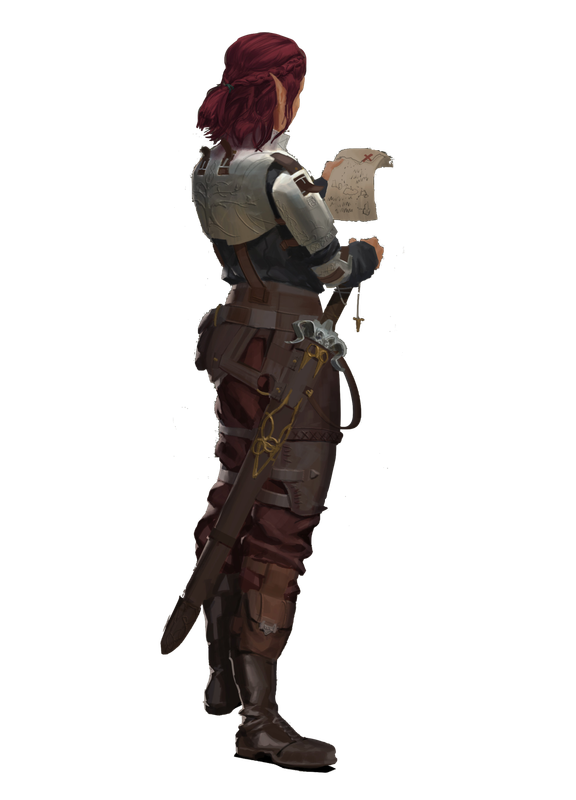
Ability Score Improvement
When you reach 4th level, and again at 8th, 12th, 16th, and 19th level, you can increase one ability score of your choice by 2, or you can increase two ability scores of your choice by 1. As normal, you can’t increase an ability score above 20 using this feature.
Extra Attack
Beginning at 5th level, you can attack twice, instead of once, whenever you take the Attack action on your turn.
Exploit Opening
Starting at 6th level, when you exploit the gaps in you find in your enemies' defenses. When you hit a creature twice with weapon attacks during your turn, your second attack deals an additional 1d8 damage and you can perform an exploit. You have three such exploits: Open Up, Outmaneuver and an option determined by your pursuit.
Open Up. Until the end of your next turn, the next attack you or an ally makes against your target is made with advantage. You expose your target's defenses.
Outmaneuver. Until the end of your next turn, your target's attacks against you are made with disadvantage. You can't use this exploit while wearing heavy armor. You dismantle your target's offense.
At 9th level and then again at 13th and 17th levels, the additional damage dealt by this feature increases by 1d8, to a maximum of 4d8 at 17th level.
Tireless
Starting 7th level, you gain proficiency in Constitution saving throws. Additionally, if you are suffering from exhaustion, you treat it as one level less, unless your level exhaustion would cause you to die.
Seize the Chance
At 11th level, when you hit an enemy twice with weapon attacks during your turn, you can use your bonus action to make an additional weapon attack against that creature.
Prodigy
At 14th level, you can effortlessly comprehend new concepts and technical abilities. If you spend 1 hour listening to a language, other than a secret language such as Druidic, you learn it. If you spend 1 hour interacting with a tool within reach, you gain proficiency with it.
Flash of Genius
At 15th level, when you roll initiative and have no uses of Improvisation left, you regain one use.
Masterstroke
At 20th level, when you use your Seize the Chance feature, you can use your bonus action to make two additional weapon attacks against that creature, rather than one.


Seeker's Pursuits
All types of seekers are characterized by their investigative skills and their capacity to use knowledge and guile to their advantage. But what truly differentiates each of them is the pursuit to which they dedicate themselves. Your choice of pursuit will determine to what end you apply your talents, and the methods you develop to excel at your focus. All pursuits also unlock new magical talents to assist the seeker.
Seeker's Pursuits
| Name | Theme | Mechanics | ||
|---|---|---|---|---|
| Bloodhound | Criminal investigator | Adds tools to lock down targets and disable enemies. | ||
| Keymaster | Teleportation adept | Additional magic mobility and some mobility denial. | ||
| Occultist | Demented researcher | Offensive magic and expanded spells... at a cost. | ||
| Relic Hunter | Daring archaeologist | Extra survivability, mobility and item manipulation. | ||
| Secret Broker | Covert operative | Subtle combat control, messing with enemies' minds. |
Subclass Design and Structure
All subclasses follow a stable subclass structure, as follows:
At 3rd level, they gain extra combat utility, and perhaps a small out-of-combat utility.
Also, starting at 3rd level, they start gaining extra spells that are usually impactful in combat, to make up for the shallow and limited spell list.
At 6th level, they gain an additional Exploit to use, providing specific combat utility to each subclass.
At 10th level, they get an utility to further cement their expertise and role.
At 17th level, to make up for the small spell selection for the end game, they gain an additional 5th level spell on top of the regular extra spells.
Finally, at 18th level, they get an end-game boost that gives them more utility and/or survivability..
Any spell marked with an asterisk (*) can be found in Xanathar's Guide to Everything.
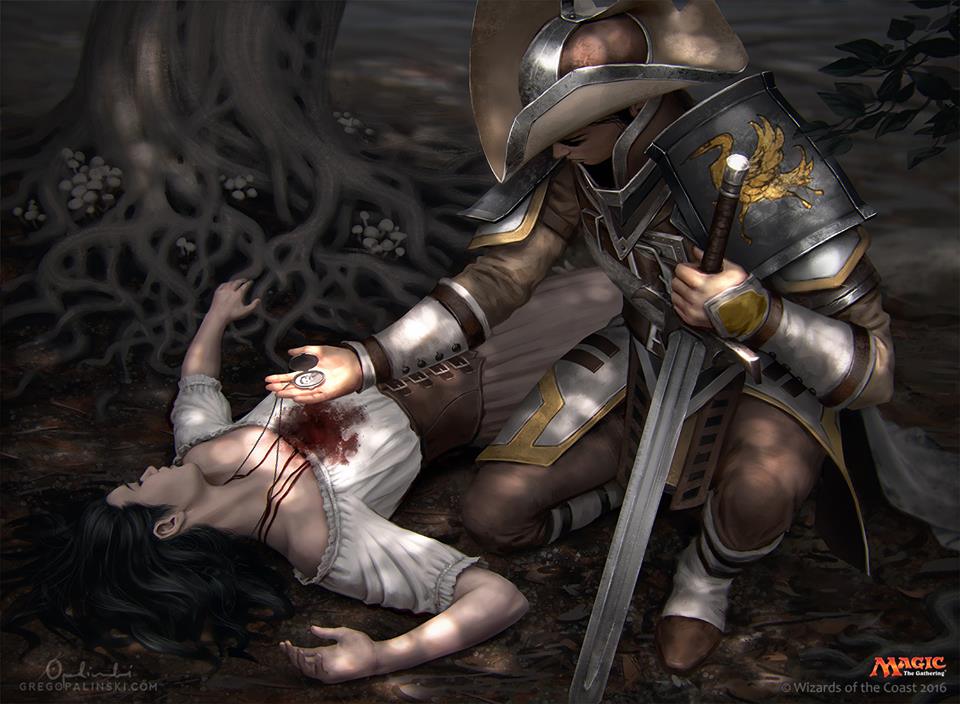

Bloodhound
You hone your skills to be able to track and capture individuals – dead or alive. The abilities you develop while following this pursuit are well-suited for bounty hunters, detectives, constables or watchers – focusing on take downs, tracking and snaring.
Bloodhound
| Seeker Level | Feature |
|---|---|
| 3rd | Sleuth |
| 6th | Arrester's Exploit |
| 10th | No Escape |
| 18th | Unstoppable Force |
Bloodhound Pursuit Spells
| Seeker Level | Spells |
|---|---|
| 3rd | ensnaring strike |
| 5th | hold person |
| 9th | erupting earth* |
| 13th | grasping vine |
| 17th | hold monster, wall of force |
Sleuth
As you enter this pursuit at 3rd level, you develop methods to find and capture your marks. You have advantage on Charisma checks to gather information and on Strength (Athletics) checks to attempt to grapple or shove a target.
Arrester's Exploit
At 6th level, your attacks allow you to lock your enemies down. You gain the following exploit:
Apprehend. You may make a grapple or shove attempt against that target. Additionally, until the end of your next turn, that enemy can't benefit from being invisible.
No Escape
Starting at 10th level, there's no escaping your grasp. You have advantage on Wisdom (Survival) checks to follow tracks. While tracking other creatures, you also learn their exact number, their sizes, and how long ago they passed through the area.
Additionally, you count as one size larger for the purpose of grapple or shove attempts you make.
Unstoppable Force
Starting at 18th level, you become relentless in your search. You have advantage on saving throws against effects that would make you paralyzed, petrified or stunned, and you are immune against effects that would reduce your speed.


Keymaster
Keymasters are keepers of ways – those who connect spaces in the ether to provide access to occult dimensions, and also those who are tasked with shutting down those pathways. Planar explorers, rift wardens and far travelers are among those who exploit these abilities to manipulate the fabric of space and time itself.
Keymaster
| Seeker Level | Feature |
|---|---|
| 3rd | Detect Portal, Riftwalk |
| 6th | Warp Exploit |
| 10th | Detect Interlopers |
| 18th | Doorway |
Keymaster Pursuit Spells
| Seeker Level | Spells |
|---|---|
| 3rd | faerie fire |
| 5th | blur |
| 9th | magic circle (you may also choose aberrations when using this spell) |
| 13th | banishment |
| 17th | hallow (this spell also affects aberrations), teleportation circle |
Detect Portal
As you enter this pursuit at 3rd level, you gain the ability to magically sense the presence of a planar portal. As an action, you detect the distance and direction to the closest planar portal within 1 mile of you. Once you use this feature, you can’t use it again until you finish a short or long rest.
Riftwalk
At 3rd level, you have a pool of planar energies that you can expend to slink into the ether which replenishes when you take a long rest. With this pool, you can teleport up to a number of feet equal to 20 x your seeker level.
As a bonus action, you can expend a number of feet from your pool to teleport up to that distance to an unoccupied space you can see. The maximum amount of feet you may spend this way on a single use is 10 feet per seeker level.
For example, a 4th level seeker would have a pool of 80 feet to spend, but could only spend up to 40 feet on a single bonus action.
Warp Exploit
Starting at 6th level, your attacks can latch onto the ether essence of your targets. You gain the following exploit:
Ethereal Tethers. All damage dealt by your attack becomes force damage and you may force the target of your attack to make a Charisma saving throw against your spell save DC. On a failed save, that enemy suffers the penalties of a slow spell until the end of your next turn.
Detect Interlopers
Starting at 10th level, you can perceive the presence of interplanar creatures. As an action, you know the location of any of the following types of creatures with 120 feet of you: aberrations, celestials, elementals, fey, fiends, or undead. This also reveals which of those creatures are present and their numbers.
Doorway
Starting at 18th level, you master your abilities to create dimensional pathways. You can use this ability to cast plane shift or teleport by spending 100 feet from your Riftwalk pool.
Occultist
There are those whose ambition and curiosity drives them to seek the teachings of ancient, eldritch beings that defy logic and reason. These occultists risk their sanity to find the knowledge they crave, and in doing so, learn the forbidden secrets of the abyss.
Occultist
| Seeker Level | Feature |
|---|---|
| 3rd | Method to Madness, Unspeakable Arcana |
| 6th | Maddening Exploit, Method to Madness (improved) |
| 10th | Eldritch Enlightenment, Method to Madness (improved) |
| 18th | Gaze into the Abyss |
Occultist Pursuit Spells
| Seeker Level | Spells |
|---|---|
| 3rd | arms of hadar |
| 5th | crown of madness |
| 9th | hunger of hadar |
| 13th | evard's black tentacles |
| 17th | contact other plane, enervation |
Method to Madness
At 3rd level, you've learned to have a measure of control of your fugue states. When you suffer short-term or long-term madness, roll the d100 two times. You can choose which result to keep.
At 6th level, you gain a stronger, yet still shaky, grip of your sanity. When you suffer short-term madness, the duration is reduced to 2d4 rounds, and when you suffer long-term madness, the duration is reduced to 2d4 hours.
At 10th level, when you roll for the duration of madness, you treat the result of the d4 rolls as a 1.
Unspeakable Arcana
As you enter this pursuit at 3rd level, you gain the ability to extract arcane energy from eldritch sources at the cost of your sanity. You may cast a seeker spell using an already expended spell slot.
After you cast the spell, you immediately suffer short-term madness and you cannot use this ability again until you finish a long rest.
Maddening Exploit
Starting at 6th level, your assaults can whittle your enemies' sanity. You gain the following exploit:
Unnerve. Until the end of your next turn, your target has disadvantage on concentration checks, can't make reactions and can't benefit from advantage.
Eldritch Enlightenment
At 10th level, you can open your consciousness to the whispers of beings from the great beyond. When you make a Intelligence, Wisdom or Charisma check, you can choose to make it with advantage. However, after the check is made, roll 1d6. On a 6, you suffer long-term madness as the whispers overtake your mind.
Gaze into the Abyss
By 18th level, you've gained the ability to pour ineffable thoughts into the mind of a creature. As an action, you psychically assault a creature within 90 feet of you with an Intelligence score of 2 or higher. That creature must make an Intelligence saving throw against your spell save DC, taking 8d8 psychic damage or half that amount on a successful save. On a failed save, the creature becomes insane for 1 minute, and can’t take actions, can't understand what other creatures say, can’t read, and speaks only in gibberish. Its movement is erratic. At the end of each of its turns, the creature can attempt another Intelligence saving throw. On a successful save, it ends this effect.
After you use this ability, you suffer short-term madness, and, once you use this ability, you cannot use it again until you finish a long rest.
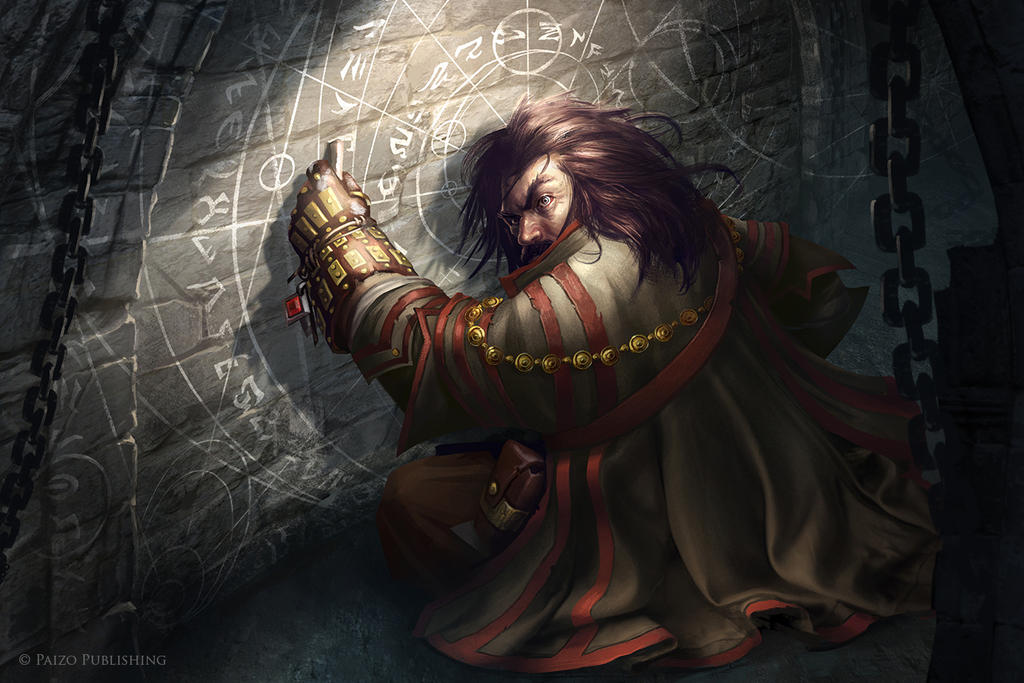

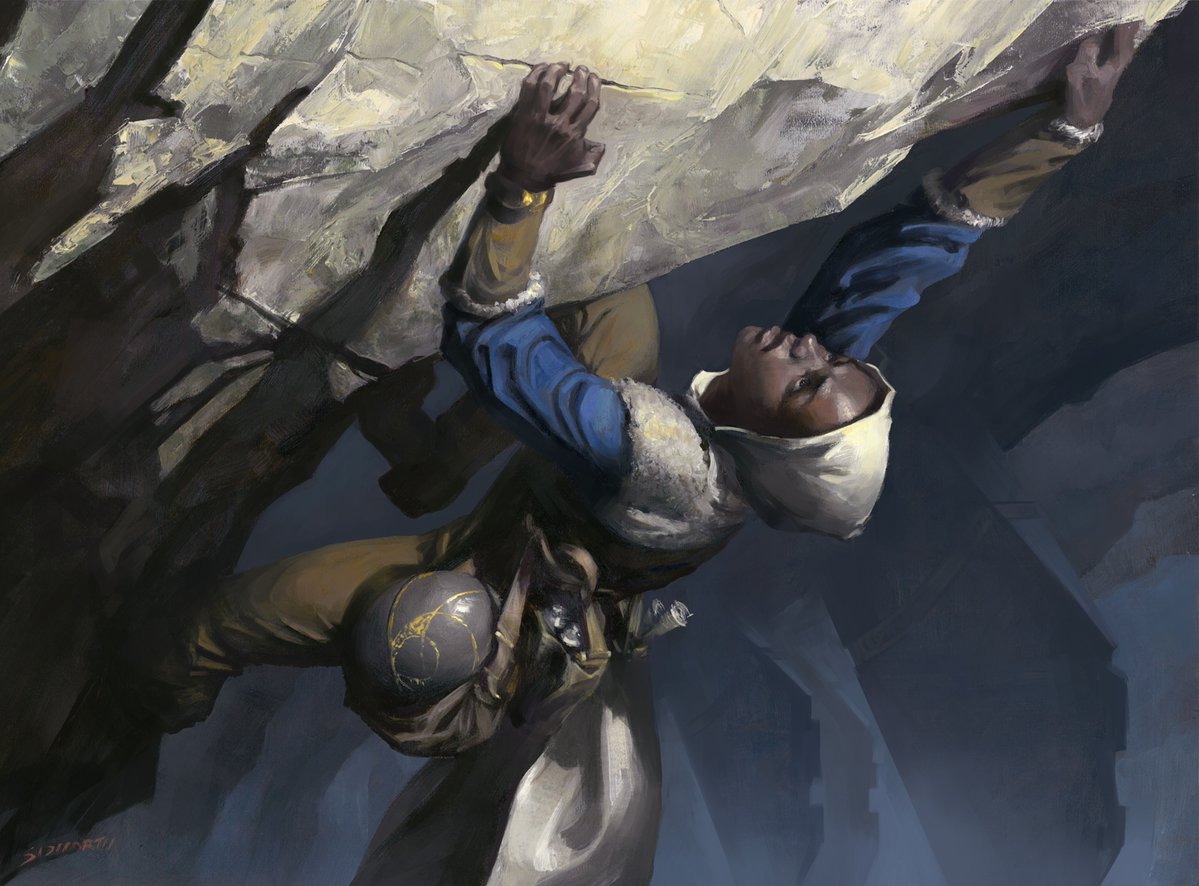

Relic Hunter
Some want the glory, some want the power, some want to uncover eldritch mysteries – but as a relic hunter, your goal is to retrieve artifacts and objects from the most dangerous locations. Coursing through cursed crypts, treacherous jungles, or fortified vaults, you have the toolset to evade danger and exploit the mystical abilities of forgotten relics.
Relic Hunter
| Seeker Level | Feature |
|---|---|
| 3rd | Tomb Raider |
| 6th | Evasive Exploit |
| 10th | Magic Item Talent, Object Reading |
| 18th | Reversal of Fortune |
Relic Hunter Pursuit Spells
| Seeker Level | Spells |
|---|---|
| 3rd | false life |
| 5th | spider climb |
| 9th | remove curse |
| 13th | death ward |
| 17th | animate objects, skill enhancement* |
Tomb Raider
As you enter this pursuit at 3rd level, you become adept in rushing past danger and use every resource at your advantage. You gain the following benefits:
- You may use the Dash and Use Object actions as a bonus action.
- Opportunity attacks made against you are made with disadvantage.
- When you make a running long jump, the distance you can cover increases by a number of feet equal to your Strength modifier.
Evasive Exploit
By 6th level, you learn how to seize the opportunity to escape your attackers. You gain the following exploit:
Tactical roll. You can move up to half your speed without provoking attacks of opportunity.
Object Reading
Starting at 10th level, you can read the magical aura of an item to know more about its origins. By spending 1 minute performing an arcane investigation with an object, you may pry out certain information imprinted on it. The object must be within your reach while performing this ritual. The information you draw out from an object can only be about its creation or about events that transpired in its vicinity in the past 24 hours.
The information stored on objects about events can only relate to happenings that could be seen or heard within 20 feet of the object.
At GM's discretion, the object may also store information from other significant events around it. For example, a sword may store information about why it was broken, or about important creatures that were slain by it.
Magic Item Talent
At 10th level, your cunning allows you to exploit the hidden powers of artifacts. You ignore all class, race, and level requirements on the use of magic items.
Reversal of Fortune
Starting at 18th level, your luck allows you to perform stunning feats. When you roll a natural 1 on a d20 roll, you treat it as a natural 20.


Secret Broker
The market of knowledge is just like any other, ruled by supply and demand. As a secret broker, however, your job is to control both – ferreting the truth from the rumors, spreading misinformation, and prying confidential information. Armed with deceitful magic, your wits and your blade, you have all the resources to be successful in your clandestine trade.
Secret Broker
| Seeker Level | Feature |
|---|---|
| 3rd | Bonus Proficiencies, Machinations |
| 6th | Conspirer's Exploit |
| 10th | Inscrutable, Mint Memory |
| 18th | Shrouded in Mystery |
Secret Broker Pursuit Spells
| Seeker Level | Spells |
|---|---|
| 3rd | dissonant whispers |
| 5th | invisibility |
| 9th | enemies abound* |
| 13th | greater invisibility |
| 17th | mislead, modify memory |
Bonus Proficiencies
At 3rd level, you gain proficiency in one of the following skills: Deception, Persuasion, Sleight of Hand or Stealth.
Machinations
As you enter this pursuit at 3rd level, how to subtly influence conflict. When you use the Disengage, Dodge, Help or Hide action, you can then use any of those actions as a bonus action.
Insidious Exploit
By 6th level, your attacks unnerve your foes. You gain the following exploit:
Agitate. Your target must make a Wisdom saving throw against your spell save DC. On a failed save, that enemy is frightened of you until the start of your next turn.
Inscrutable
At 10th level, creatures have disadvantage on contested Intelligence, Wisdom and Charisma checks they make against you.
Mint Memory
Starting at 10th level, you have access to a special ritual that allows you to store a creature's memory into an object or show a stored memory to others. After spending 1 minute while a coin is within your reach, a willing creature may touch the object to store one of its memories into it, at the creature's choice. Even if the creature is uncertain about the full details of that memory, storing the memory this way imparts all the details as far as that creature was aware of at the time. An object can only store one memory at the time, and the memory cannot span a period of time longer than 1 hour. After a creature stores a memory this way, if the creature is willing, that creature may also erase that specific memory from its mind.
After this is done, you may select a command word. When a creature touches the object and speaks that word, that creature witnesses the memory as it was stored. This an immediate effect that takes no time.
Shrouded in Mystery
At 18th level, you become a riddle wrapped into an enigma. You are always under the effects of a mind blank spell. If you attack a creature or cast a harmful spell against one, this effect is suppressed for 1 hour.
You can also use an action to voluntarily suppress this effect. If you suppress this effect this way, you can use an action to enable it again.
Seeker Spells
As a seeker, when you learn spells you can choose from the following list of spells.
1st Level
- Alarm
- Comprehend Languages
- Detect Evil and Good
- Detect Magic
- Detect Poison and Disease
- Disguise Self
- Feather Fall
- Identify
- Illusory Script
- Jump
- Longstrider
- Purify Food and Drink
- Silent Image
- Tenser's Floating Disk
- Unseen Servant
2nd Level
- Arcane Lock
- Augury
- Continual Flame
- Darkness
- Darkvision
- Detect Thoughts
- Find Traps
- Gentle Repose
- Knock
- Lesser Restoration
- Levitate
- Locate Animals or Plants
- Locate Object
- Magic Mouth
- Nystul's Magic Aura
- Pass Without Trace
- Rope Trick
- See Invisibility
- Silence
- Skywrite*
- Zone of Truth
3rd Level
- Catnap*
- Clairvoyance
- Create Food and Water
- Daylight
- Dispel Magic
- Haste
- Leomund's Tiny Hut
- Major Image
- Meld into Stone
- Nondetection
- Protection from Energy
- Sending
- Slow
- Speak with Dead
- Tongues
- Tiny Servant*
- Water Breathing
- Water Walk
4th Level
- Arcane Eye
- Divination
- Fabricate
- Freedom of Movement
- Leomund's Secret Chest
- Locate Creature
- Mordenkainen's Private Sanctum
- Otiluke's Resilient Sphere
- Stone Shape
5th Level
- Creation
- Greater Restoration
- Legend Lore
- Passwall
- Rary's Telepathic Bond
- Scrying
Seeker & Multiclassing
Seekers follow all normal rules for multiclassing. Use the following tables to determine prerequisites and proficiencies:
Multiclassing Prerequisites:
Strength or Dexterity 13, and Intelligence 13
Multiclassing Proficiencies:
Light armor, simple weapons, martial weapons, and the Investigation skill.


Show Your Work
GM still unsure on whether to allow this class? Here are a few comparison benchmarks to have a discernible measure of power level. As it can be appreciated, Seeker always hits a middling benchmark in damage, fluctuating into higher tiers of damage later at the expense of resource use and more limited damage options.
2nd level, Dueling 1H + Shield
vs 13 AC enemies
Damage calculations here.
6th level, Dueling 1H + Shield
vs 15 AC enemies
Damage calculations here.
11th level, Dueling 1H + Shield
vs 17 AC enemies
Damage calculations here.
Changelog
Version 1.2
- Rehosted images for faster loading.
Version 1.1
- Seize the Chance and Masterstroke now must be used to attack the same creature.
- Exploit Opening damage now increases at 9th, 13th and 17th level, to make up for lack of combat spells.
- Removed Adaptive Defense.
- Added Outmaneuver exploit to replace Adaptive Defense.
- Tireless moved to 7th level.
- Relic Hunter's Evasive Exploit no longer needs reaction to be used.
- Keymaster's Riftwalk now requires sight to teleport.
- Keymaster's Ethereal Tethers now last 1 turn.
- Occultist's Method to Madness 6th level increment nerfed a bit.
- Added calculations to Show Your Work for 6th level.
- Show Your Work now links to documents rather than images.
- Minor wording changes and fixes.
Version 1.0
- Added Changelog section.
- Minor visual and text edition.
- Added a scaling damage component to Exploit Opening, increasing at 11th, 15th and 20th level.
- Removed the bonus damage from Seize the Chance.
- Removed Critical Analysis.
- Flash of Genius is now gained at 15th level.
- New feature at 20th level: Masterstroke.
- Removed Catapult, Find Familiar, Heat Metal and Shatter from spell list.
- Added Disguise Self, Major Image and Silent Image to spell list.
- Redesigned Show your Work section with links rather than images.
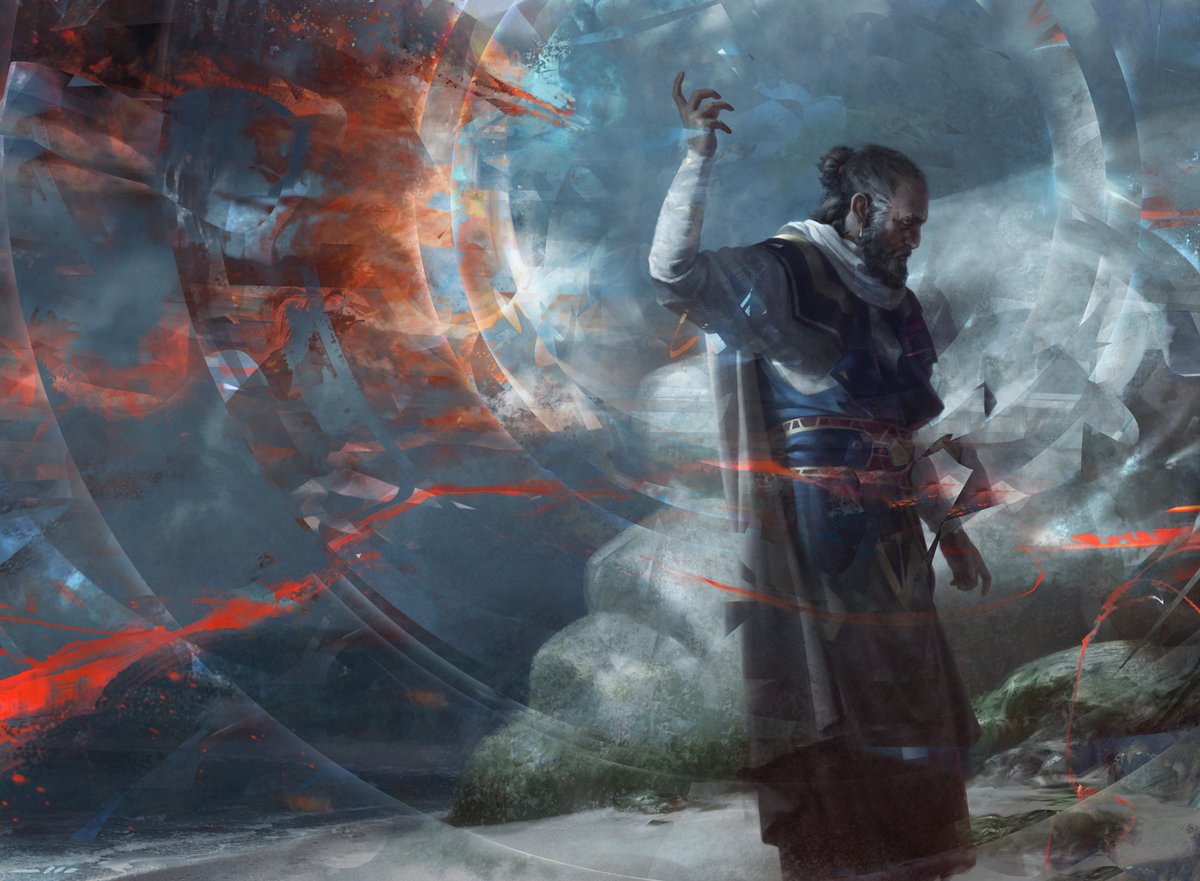



The
Seeker
I hope you are able to enjoy the Seeker, and in case you have any feedback to share about it, consider myself more than willing to hear it.
My gratitude to the r/UnearthedArcana community, the GitP community, to the
people at the Discord of Many Things, to the artists who share their art online, and to the staff of GMBinder.
Lots of love,
Secret Wizard – u/iamasecretwizard
Art Credits
Front Cover
Compulsive Research, by Sarah Winters
Page 1
Dungeon Gate, by Jordan Grimmer
Page 2
Ruins, by Matthias Zamecki
The one-eyed female general, by Rocky Su
Page 3
天空, by Reishin
Page 4
Ruins, by X xz
Page 5
Peripeteia Ruins, by Stephen Garrett
Where to Next?, by Conor Sheehan
Page 6
Flight of the Fenri, by Simon Thorpe
Page 7
Ulvenwald Mysteries, by Greg Opalinski
Page 8
Tetsuko Umezawa, by Randy Vargas
Page 9
Maddening Compulsion, by Takeda11
Page 10
Daring Archaeologist, by Sidharth Chaturvedi
Page 11
Notion Thief, by Clint Clearly
Page 12
Shared Discovery, by Ryan Pancoast
Page 13
Syncopate, by Tommy Arnold
Back Cover
Dungeon Delve, by Claudio Pozas
Other Credits
Skirmishing Fighting Style was created by u/JewishZombie
Seeker Class Logo was created by Modstin